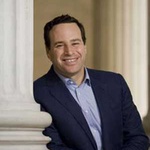Analysis: Why Leaking Transcripts of Trump's Calls Is So Dangerous
When the president’s opponents violate norms to undermine him, they do lasting damage to American security.
Leaking the transcript of a presidential call to a foreign leader is unprecedented, shocking, and dangerous. It is vitally important that a president be able to speak confidentially—and perhaps even more important that foreign leaders understand that they can reply in confidence.
Thursday’s leak to The Washington Post of President Trump’s calls with the president of Mexico and the prime minister of Australia will reverberate around the world. No leader will again speak candidly on the phone to Washington, D.C.—at least for the duration of this presidency, and perhaps for longer. If these calls can be leaked, any call can be leaked—and no leader dare say anything to the president of the United States that he or she would not wish to read in the news at home.
In March, I warned about the risk of judicial overreach:
In response to the danger posed by Trump, other American power holders will be tempted to jettison their historic role too, and use any tool at hand—no matter how doubtfully legitimate—to stop him. Those alternative power holders may even ultimately win. But in winning, they may discover themselves in the same tragic position as that Vietnam-era army officer who supposedly said: “We had to destroy the village in order to save it.”
The risk of national-security establishment overreach looms even larger. The temptation is obvious: Senior national-security professionals regard Trump as something between (at best) a reckless incompetent doofus and (at worst) an outright Russian espionage asset. The fear that a Russian mole has burrowed into the Oval Office may justify, to some, the most extreme actions against that suspected mole.
The nature of this particular leak suggests just such a national-security establishment origin. It is a very elegantly designed leak. The two transcripts belong to calls whose substance was already widely reported in the media; they give away nothing new.
Better still from a national-security establishment point of view: both calls make the foreign leader look good at home. Enrique Peña Nieto will be helped, not hurt, by his dignified defense of Mexican national interests; Malcolm Turnbull is shown being simultaneously compassionate to deserving refugees but stern in his defense of Australian law and preexisting agreements with the United States.
Best of all, from that same national-security point of view, the transcripts reveal Trump as an arrant fool without actually compromising any important U.S. national interest. Speaking to the president of Mexico, Trump claims he won the state of New Hampshire because it is a “drug-infested den.” Trump won the state’s Republican primary, but lost New Hampshire in 2016, and that quote will not help him do better in 2020. The Turnbull transcript confirms the accuracy of early reports that Trump erupted in temper—and exposes Trump’s claims about the call as untrue. "Thank you to Prime Minister of Australia for telling the truth about our very civil conversation that FAKE NEWS media lied about. Very nice!” he tweeted on February 3. But the transcript records him saying: "As far as I am concerned that is enough Malcom. I have had it. I have been making these calls all day and this is the most unpleasant call all day. Putin was a pleasant call. This is ridiculous."
But if no high national-security secret has been betrayed in these transcripts, the workings of the U.S. government have been gravely compromised, and in ways that will be very difficult to repair even after Trump leaves office. Trump’s violation of basic norms of government has driven people who would otherwise uphold those norms unto death to violate them in their turn. Contempt for Trump’s misconduct inspires counter-misconduct.
Nor is that the end. The less Trump can trust the regularly constituted government, the more justified he will feel in working irregularly. His irregular actions then justify more counter-irregularity from the rest of the government.
Donald Trump has launched the executive branch into a cycle of self-destruction for which he bears ultimate blame—but whose ultimate cost will be borne by his successors and the American nation.







